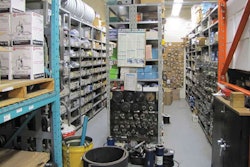Legislation to repeal the 12 percent federal excise tax on truck and trailer purchases and replace it with an increase in the diesel fuel tax has been introduced in the U.S. House of Representatives. Congressmen Jim Gerlach (R-Pa.) and Earl Blumenauer (D-Ore.) introduced the bipartisan bill, H.R. 4321, on the House floor March 29.
The excise tax has been in place since the adoption of Title 26, Section 4051 of the Internal Revenue Code of 1982 and was re-established under the Internal Revenue Code of 1986. The FET, along with federal fuel taxes, are both sources of revenue for the Highway Trust Fund, which provides monies for surface transportation programs across the country.
In order to protect the Highway Trust Fund from a loss of revenue due to the repeal of the truck and trailer excise tax, the diesel tax would increase by 6.4 cents per gallon under the legislation. According to the Joint Committee on Taxation, this would result in a net equal sum over the course of 10 years.
This change in law would also give more certainty to Highway Trust Fund revenues by linking the funding to diesel fuel consumption rather than the excise tax as truck and equipment sales tend to fluctuate greatly due to economic conditions, according to the Truck Renting And Leasing Association, which supports the legislation.
TRALA says its members purchase between 35 to 40 percent of all new trucks and equipment in North America, and that eliminating the FET would help mitigate the cost of investing in new equipment and accelerate the utilization of new environmental and safety technologies in commercial truck transportation.
The American Trucking Associations also endorsed the legislation. “It is exactly the kind of pro-growth deficit-trimming legislation that lawmakers should be looking at as they seek to address our nation’s economic woes,” said Bill Graves, ATA president and chief executive officer. Revenues from the excise tax are paid into the Highway Trust Fund only when new trucks are purchased, but when truck sales slump, “it puts more pressure on the already overextended fund,” Graves said.
“By collecting more in the diesel tax, the federal government could ensure a more stable and predictable source of funding for needed highway and bridge projects,” he said. “Further, by cutting more than $15,000 from the cost of the average new truck, eliminating the excise tax will encourage purchases of trucks, providing a boost for manufacturing, and accelerate the adoption of new technologies aimed at improving safety and fuel efficiency.”












